People
Interdisciplinary conservation scientist; ARC Future Fellow; Professor, ICON Science Research Group, Centre for Urban Research, RMIT University.
Professor Sarah Bekessy leads the Interdisciplinary Conservation Science research group at RMIT University. She is interested in the intersection between science and policy in environmental management and is currently involved in an interdisciplinary range of research projects, including an ARC Future Fellowship titled ‘Socio-ecological models for environmental decision making’ and an ARC linkage project titled ‘Designing green spaces for biodiversity and human well-being’. She leads projects in two National Environment Science Program Hubs (Threatened Species Hub and Clean Air and Urban Landscapes Hub) and is a Chief Investigator in the European Commission-funded project Urban Greenup, which seeks to evaluate nature-based solutions for cities. She co-developed the Biodiversity Sensitive Urban Design protocol that is now being used by numerous developers, governments and non-government organisations to design innovative urban biodiversity strategies.

Yoko Akama is a design researcher at RMIT University, Australia. She co-leads the Design and Social Innovation in Asia-Pacific network and Design+Ethnography+Futures research program at RMIT.
Her Japanese heritage has embedded a Zen-informed relational practice to carve a ‘tao’ (path) in design and has published extensively on this topic. This practice is shaped by working with regional communities in Australia in strengthening their resilience for disaster preparedness, and with Indigenous Nations enact their sovereignty and self-determination. She is an Adjunct Fellow of a ecosystem innovation studio, Re:public Japan, and Visiting Fellow at the Centre of Excellence in Media Practice, Bournemouth University. She serves on several editorial boards of international journals, and conference review committees. She is a recipient of several major research grants in Australia and the UK and winner of the prestigious Good Design Australia Awards in 2014.
Mark Andrejevic (Professor, School of Media, Film, and Journalism, Monash University) contributes expertise in the social and cultural implications of data mining, and online monitoring. He writes about monitoring and data mining from a socio-cultural perspective, and is the author of three monographs and more than 60 academic articles and book chapters. He was the Chief Investigator for an ARC QEII Fellowship investigating public attitudes toward the collection of personal information online ($390,000; 2010 – 2014).
Andrejevic has experience conducting both quantitative and qualitative research and is experienced in the focus group and interview methodologies. His work on the personal information project, for example, generated a book, 11 articles and book chapters, and a report on Australian attitudes toward online privacy that was launched by the Federal Privacy Commissioner.
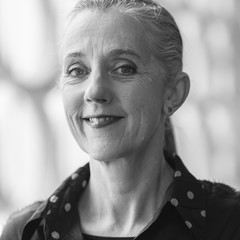
Since 1991, Associate Professor Suzie Attiwill’s freelance practice has involved exhibition design, curatorial work and writing on interdisciplinary projects in Australia and overseas. Her practice poses questions of interior and interiority in relation to contemporary conditions of living, inhabitation, subjectivity, pedagogy and creative practice. Research is conducted through a practice of designing with a curatorial inflection attending to arrangements (and re-arrangements) of spatial, temporal and material relations. Projects include: urban + interior – a collaborative publication project bringing together an editorial team situated in Milan, Madrid and Melbourne; beyond building with Gregory Nicolau (Australian Childhood Trauma Group); Abacus Learning Centre – for children on the autism spectrum; and a series of curatorial experiments in ecologies of learning – physical, social and mental. Suzie is recognised internationally for her contribution to the discipline of interior design including workshop intensives: Radical Learning, Milan International Architecture Week; and Urban Interiorities in Nicosia, Cyprus; texts: ‘interiorizt’, 2014; and ‘Urban and Interior: techniques for an urban interiorist’, 2011. Artistic director of Craft Victoria (1996−99); board member/chair, West Space (2006−10); chair, IDEA (Interior Design/Interior Architecture Educators Association, 2006-12); executive board member, International Federation of Interior Architects/Designers (2020−21).
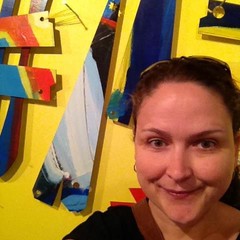
With a twenty-five-year history of art and social justice practice Australia and Canada, Marnie’s research sits at the intersection of socially engaged art, community-based research methodologies and the politics of cultural measurement. Marnie is currently focused on a series of creative cartographies registering emotion in public space; expanded curation projects on the aesthetics and politics of food; and a book project The Social Life of Artist Residencies: connecting with people and place not your own. Marnie is Senior Research Fellow at the School of Art following the prestigious award of Vice Chancellor’s Postdoctoral Research Fellow at RMIT University. Marnie co-leads the Cultural Value Impact Network and is acting Leader for CAST Contemporary Art and Social Transformation research group.
Interdisciplinary conservation scientist; ARC Future Fellow; Professor, ICON Science Research Group, Centre for Urban Research, RMIT University.
Professor Sarah Bekessy leads the Interdisciplinary Conservation Science research group at RMIT University. She is interested in the intersection between science and policy in environmental management and is currently involved in an interdisciplinary range of research projects, including an ARC Future Fellowship titled ‘Socio-ecological models for environmental decision making’ and an ARC linkage project titled ‘Designing green spaces for biodiversity and human well-being’. She leads projects in two National Environment Science Program Hubs (Threatened Species Hub and Clean Air and Urban Landscapes Hub) and is a Chief Investigator in the European Commission-funded project Urban Greenup, which seeks to evaluate nature-based solutions for cities. She co-developed the Biodiversity Sensitive Urban Design protocol that is now being used by numerous developers, governments and non-government organisations to design innovative urban biodiversity strategies.
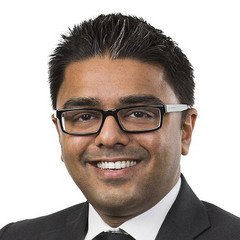
Hardik Bhimani is a PhD student in the School of Economics, Finance and Marketing and is concurrently completing a Graduate Diploma in Psychology at Monash University. Hardik holds a Masters in Applied Finance from Kaplan Business School (Sydney) and is a member of the prestigious Strategic Management Society.
“Managers face many strategic decisions but they often make unsustainable choices. So the challenge for todays’ firms is – how to effectively make social, environmental and economic choices?”
Prior to joining RMIT, where Hardik currently teaches Strategic Management courses, he was an award winning strategist and subject matter expert at several multinational organisations. It was during this period that he cultivated a curiosity for behavioural strategy. Ultimately, the quest to advance his research found him a ‘home’ at RMIT University’s Behavioural Business Lab.
“The access to supportive supervisors and a team of like-minded critical thinkers means the research journey is not only pleasant, but also engaging.”
Hardik’s research aims to understand the micro foundations of the interplay between social, environmental and economic strategic choices. His mixed-method research takes a behavioural strategy perspective and explains psychological influences, which affect strategic decision-making. In turn, the findings could guide managers’ to effectively de-bias their decision-making process, for a more sustainable strategic choice.

Cees Bil is Professor within the School of Engineering at RMIT’s Bundoora campus. He is a member of Royal Aeronautical Society (RAeS), a member of the Dutch Association of Aerospace Engineers (NVvL) and a senior member of the American Institute of Aeronautics and Astronautics (AIAA). His areas of research and consulting expertise include aerodynamics, Aerospace Design and Optimisation, Dynamics and Control, Computer-Aided Engineering as well as Simulation and Modelling.

Janneke Blijlevens is a Senior Lecturer in Design Thinking and Experimental Methods within the Marketing Discipline. With a Masters in Psychology, a PhD in consumer behaviour and design, and work experience in both design and business schools her research is truly interdisciplinary. Janneke uses her ability to understand different ways of thinking to design innovative solutions to complex societal and business problems. Her approach uses behavioural insights obtained in both qualitative and quantitative research to affect positive behaviour change in society. Her research covers areas such as product (design) perception and evaluation by consumers, the social roles that products can play to consumers, how to design products for social change, and psychological factors influencing the adoption of highly innovative products by consumers. She has published in top-tier academic journals such as Psychology & Marketing, International Journal of Design, Acta Psychologica, British Journal of Psychology, Journal of Psychology in Aesthetics, Creativity, and Arts, and Journal of Design, Business and Society. The project ‘Sans Forgetica, a font to remember (sansforgetica.rmit)’ gained world-wide acclaim.
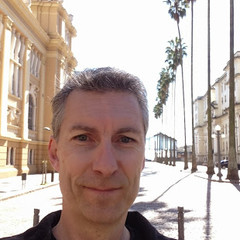
Leon de Bruin, is a Post-Doctoral Research Fellow at RMIT University. He is an educator, musician, composer and researcher. He has extensive research work and has authored over 20 peer reviewed articles and book chapters relating to meta-cognition, creativity, performing arts/artistic practices, STEM/STEAM, creativity in education and the arts. He has been the recipient of the Monash University Vice-Chancellors commendation for excellence (2017), and the ASME Callaway Award (2017) and the Monash University Postgraduate Publications Award (2016).
He works in the RMIT Creative Agency Research Lab, where he brings extensive qualitative and qualitative research experience, expertise in creativity in educational, environments, inderdisciplinarity, creativity and STEAM education, as well as vast educational experience, knowledge and connectivity to Australian Schools.

Claus-Christian Carbon studied Psychology (Dipl.-Psych.), followed by Philosophy (M.A.), both at the University of Trier, Germany. After receiving his PhD from the Freie Universität Berlin and his “Habilitation” at the University of Vienna, Austria, he worked at the University of Technology Delft, Netherlands and the University of Bamberg, Germany, where he currently holds a full professorship leading the Department of General Psychology and Methodology and the “Forschungsgruppe EPAEG” — a research group devoted to enhancing the knowledge, methodology and enthusiasm in the fields of cognitive ergonomics, psychological aesthetics and Gestalt (see www.experimental-psychology.com and www.epaeg.de for more details). He is the author of more than 400 publications including more than 160 peer-reviewed international journal articles, mainly addressing aesthetics topics, has conducted more than a dozen research projects with a total budget amount of approx. €3 million and a renowned contributor and invited speaker on international research conferences. CCC is Editor-in-Chief of the scientific journal Art & Perception, Section Editor of Perception and i-Perception, Associate Editor of Frontiers in Psychology, Frontiers in Neuroscience and Advances in Cognitive Psychology and a member of the Editorial Boards of Open Psychology, Musicae Scientiae and Leadership, Education and Personality.
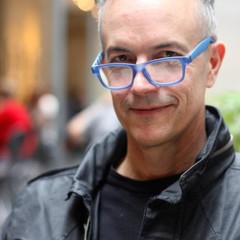
David Carlin is a writer, creative artist and scholar. His books include The Abyssinian Contortionist, Our Father Who Wasn’t There, and (forthcoming) The After-Normal for Rose Metal Press, and 100 Atmospheres: Studies in Scale and Wonder for Open Humanities Press. David’s essays, plays, radio features, exhibitions, documentary and short films have won awards and featured at numerous international festivals. He co-edited a cross-cultural anthology of Asian and Australian writers, The Near and the Far (with Francesca Rendle-Short, Scribe 2016) and Performing Digital (Routledge, 2015), about the Circus Oz Living Archive project he led. Co-President of the NonfictioNOW Conference, the world’s leading conference in literary nonfiction, David is a Professor at RMIT University, Australia, where he co-directs WrICE and non/fictionLab.
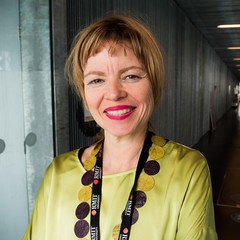
Esther Charlesworth is a Professor in the School of Architecture and Design at RMIT University, and the Academic Director of the RMIT Master of Disaster, Design and Development degree [MoDDD]. She is also the founding Director of Architects without Frontiers (AWF). Since 2002, AWF has undertaken over 40 health, education and social infrastructure projects in 12 countries for vulnerable communities, and has been described by ABC radio broadcaster Phillip Adams as ‘destined to develop into one of the greater forces of good on this battered planet’.
Charlesworth has published seven books on the theme of social justice and architecture, including: Humanitarian Architecture (2014) and Sustainable Housing Reconstruction (2015).
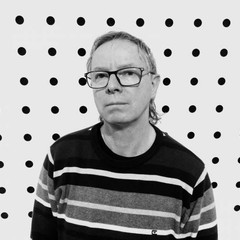
David Chesworth is a Vice-Chancellor’s Fellow at RMIT, based in the School of Art and DCP Research Platform. He is a cross-disciplinary artist, composer and researcher with an experimental background, He has created investigative artworks in visual art, music, screen-based media, performance and installation, and across the wider cultural sector, including major museums and artist run initiatives and the public domain. Recent artworks created with collaborator Sonia Leber were exhibited in the main programs of the Venice and Sydney Biennale’s and the satellite program of Moscow Biennale. His sound works have been presented internationally, including Brooklyn Academy of Music’s Next Wave Festival and The Bang on a Can Marathon in New York, and Ars Electronica in Austria (Prix Ars Electronica Honorary Mention).
His recent award-winning PhD investigation into ontologies of listening within visual arts practice interrogated artworks at Dia:Beacon in upstate New York. This led to a practice-based research project as an Associate Investigator with the ARC Centre of Excellence for Australian Biodiversity and Heritage (CABAH) where he investigated, with Earth scientists and Indigenous traditional owners, different understandings of the world.
His postdoctoral research will involve the creation of three artworks that investigate sound archives: a collection of early Indigenous recordings, an experimental music archive, and a collection of recently unearthed séance tapes, this will be supplemented with a range of written research outputs. David is also co-creating a large-scale research artwork called What Listening Knows for exhibition in the UK later in the year.

Dr Jaz Hee-jeong Choi is a Vice-Chancellor’s Senior Research Fellow at the Digital Ethnography Research Centre at RMIT. Previously, she was a Founding Member and the Director of the QUT Urban Informatics Research Lab, a transdisciplinary research group exploring and designing at the intersection of people, places, and technologies. She also founded the SIGCHI FoodCHI Network.
She is an advocate for transdisciplinary research, carefully balancing creativity and criticality. Her approach to urban sustainability recognises ‘play’ as the core of transformative interactions in cities as complex techno-social networks. She builds on this to explore how various forms of digital and playful experiences are designed and evolve in different cultural contexts. Her current research explores designing with and for care for liveable and equitable urban futures across three inter-related domains: wellbeing and ageing; impactful research methods, and; co-creative urban transformation.
She has collaborated with leading international researchers, published in books and journals across various disciplines, and given invited talks at major international conferences including the inaugural Global Social Economy Forum in 2013 and the opening keynote at the 2010 UNESCO Creative Cities Conference.
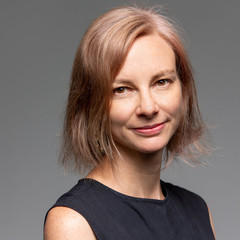
Dr Bronwyn Coate is a Senior Lecturer in the School of Economics, Finance and Marketing who specialises in cultural economics. Bronwyn’s research involves economic analysis of the arts and creative industries using a range of economic and experimental techniques including approaches from behavioural economics and behavioural science. Areas her research has focused upon include art markets, artists/cultural labour, and cultural/creative industries. Much of Bronwyn’s research is undertaken within mult-idisciplinary teams and focused upon addressing issues with policy relevance for the arts and cultural sector. Bronwyn is a member of a number of a number of research groups including the Cultural Value Impact Network (CVIN), Kinomatics Research Group, Behavioural Business Lab (BBL) and Placemaking Economics Research Group. She is also the current Secretary/Treasurer of the Association for Cultural Economics International (ACEI).
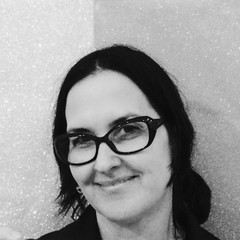
Gretchen Coombs is a Post Doctoral Research Fellow in the Design & Creative Practice Enabling Capability Platform at RMIT. She researches socially engaged art practices in the US, the UK and Australia, with a particular focus on how they are practiced in urban contexts. She’s a core member of the Cultural Value and Impact Network (CVIN) and contributes to Creative Care in the School of Art. Gretchen has a PhD in social and cultural anthropology and a MA in visual criticism: her writing uses a combination of ethnographic methods and visual analysis. She is a co-author of Creative Practice Ethnographies (Rowan & Littlefield 2019) and her monograph, The Lure of the Social: Encounters with Contemporary Artists (Intellect 2021 ) is an experimental ethnography about contemporary artists working at the intersection of art, aesthetics, and politics.
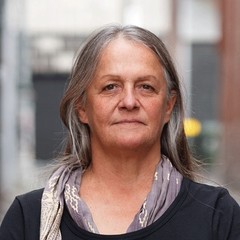
Dr Couzens is Gunditjmara from the Western Districts of Victoria. She acknowledges her ancestors and elders who guide her work.
Dr Couzens has worked in Aboriginal community affairs for almost 40 years. Her contributions in the reclamation, regeneration and revitalisation of cultural knowledge and practice extend across the ‘arts and creative cultural expression’ spectrum including language revitalisation, ceremony, community arts, public art, visual and performing arts, and writing. She is a Senior Knowledge Custodian for Possum Skin Cloak Story and Language Reclamation and Revival in her Keerray Woorroong Mother Tongue.
Vicki is employed at RMIT as a Vice Chancellors Indigenous Research Fellow developing her Project ‘watnanda koong meerreeng , tyama-ngan malayeetoo (together body and country, we know long time)’ The key objective of this Project is to produce model/s, pathways and resources for continuing the reinvigoration of Aboriginal Ways of Knowing Being and Doing with a special focus on language revitalisation.

Hugh Davies is an artist, curator and researcher of games and play. His practice explores histories of media devices and cultures of games in the Asia Pacific Region. Awarded a PhD in Art, Design and Architecture from Monash University in 2014, Hugh’s studies in game cultures have been supported with fellowships from Tokyo Art and Space, M+ Museum of Visual Culture and the Hong Kong Design Trust. Hugh is currently a postdoctoral research fellow at RMIT in Melbourne, Australia.
Suzanne Davies was Director and Chief Curator, RMIT Gallery from 1996. She retired in 2018. Instrumental in building RMIT Gallery’s relationship with Germany she organized the inclusion of many German exhibitions in the RMIT Gallery program and strategically nurtured the relationship.
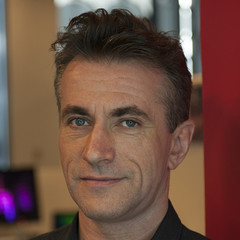
Dr Jonathan Duckworth is a digital media artist, designer and founding director of the CiART Lab (Creative interventions, Art and Rehabilitative Technology) RMIT University. Duckworth’s research spans media art, digital design, game technology and human computer interaction. He was awarded a RMIT Vice Chancellor’s Research Fellowship between 2012 – 2015.
Duckworth brings to RMIT a broad range of industry and research experience in digital media design from his practice called ZedBuffer. His practice specialises in research, development and production of novel interactive installations for government clients, museums, galleries and public venues using computer game technology. The practice also serves as a repository for his funded research activities, speculative designs and experimental interactive media art works.
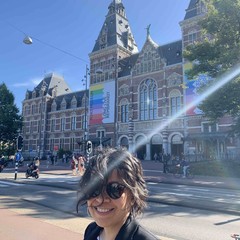
Jacinthe Flore is a Vice-Chancellor’s Postdoctoral Research Fellow in the Social and Global Studies Centre at RMIT University. She is an interdisciplinary scholar whose research lies at the intersections of technology, health and society. With a particular interest in digital mental health, Jacinthe’s research examines the social and policy implications of innovations such as artificial intelligence, apps, wearables and fourth generation pharmaceuticals, and their circulations in people’s everyday lives.
Interdisciplinary conservation scientist, Senior Research Fellow, NESP Threatened Species Recovery Hub; Senior Lecturer, School of Global, Urban and Social Studies; ICON Science Research Group, Centre for Urban Research, RMIT University, Melbourne
Georgia is an ecologist and conservation scientist. She is a Senior Research Fellow in RMIT’s ICON Science Research Group and Centre for Urban Research, and Senior Lecturer in the School of Global, Urban and Social Studies, where she teaches Ecological Foundations of Planning. For over a decade, she has conducted research that addresses the critical challenge of conserving and enhancing biodiversity in urban environments. Her protocol for Biodiversity Sensitive Urban Design, codeveloped with Prof Sarah Bekessy, was a finalist in the Banksia Sustainable Cities Award 2016. Georgia has contributed to and led projects on biodiversity sensitive urban design for greenfield and urban renewal development projects, with local government (City of Melbourne), industry (GHD) and philanthropic (The Myer Foundation) organisations. She also co-leads projects for the National Environmental Science Program’s Threatened Species Recovery Hub and the Victorian Department of Environment, Land, Water and Planning that aim reconnect people with nature in a way that fosters care and stewardship for nature. She is a CI on a current ARC Linkage Project (Designing green spaces for biodiversity and human well-being), with project partners the City of Melbourne, ARUP, Greening Australia and Phillip Johnson Landscapes.
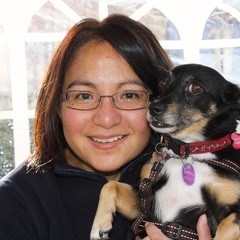
Catherine Gomes is an Associate Professor in RMIT University’s School of Media and Communication. Catherine is an ethnographer whose work contributes to the understanding of the evolving migration, mobility and digital media nexus. As a migration and mobility scholar, Catherine specialises on the social, cultural and communication spaces of transient migrants, especially international students, their wellbeing, their social groups and their digital engagements. Catherine’s work covers the themes of identity, ethnicity, race, memory and gender. She is a specialist on the Asia-Pacific with Australia and Singapore being significant fieldwork sites. Catherine has experience in mixed methods and interdisciplinary research.
Catherine’s work on transient migration and digital technology is advancing work on migration and mobility because of the transient-digital nexus she pioneers. Moreover, as founding editor of Transitions: Journal of Transient Migration Migration (Intellect), editor of the Culture, Media and Communication in Migrant Societies book series (Amsterdam University Press) and lab leader of the Migration and Digital Media Research Lab housed in the Digital Ethnography Research Centre (DERC), Catherine facilitates intellectual discussions with the aim of generating practical outcomes to address and assist policymakers and stakeholders interested in transient migration and international mobility.
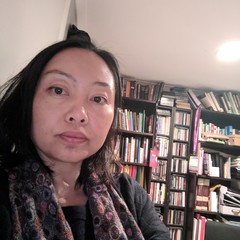
Dr Olivia Guntarik is interested in the relationship between people, places and technologies. She has co-designed and curated place-based cultural walking trails with Indigenous community groups, using mobile apps as self-guided digital tour guides, and as a way to commemorate sites of historical significance. She has led numerous industry-based research projects that bring together writers, artists, designers and digital experts with geographers, sociologists, ethnographers and educators. She was awarded two distinguished Creative Victoria funding initiatives, co-supported through the Department of Education and Training under the Virtual Creative Professionals in Schools program, to provide schools in rural and regional locations with the highest quality creative and digital learning experiences. Research outcomes included the development of interactive mobile apps and site-specific public installations, providing new ways to document and understand user engagement, participation and impact.
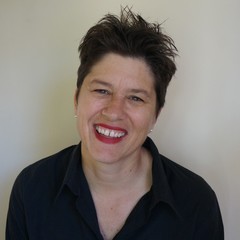
Dr Anne M. Harris, PhD is an Associate Professor and Vice Chancellor’s Principal Research Fellow at RMIT University, and an Australian Research Council Future Fellow (2017 – 2021) studying intercultural creativity. Anne is an Honorary Research Fellow at University of Nottingham (UK) and an Adjunct Professor at Monash University (Australia).
Their research is in the areas of gender, creativity, diversity, performance and emerging digital ethnographies. Anne is a native New Yorker and has worked professionally as a playwright, teaching artist and journalist in the USA and Australia. They have authored or co-authored over 60 articles and 13 books on creativity, arts, and non-dominant culture formations, the latest being Queering Families/Schooling Publics: Keywords (with Stacy Holman Jones, Sandra Faulkner, and Eloise Brook, Routledge 2017). Anne is the creator and series editor of the Palgrave book series Creativity, Education and the Arts, and recently completed an Australian Research Council DECRA on the commodification of creativity.
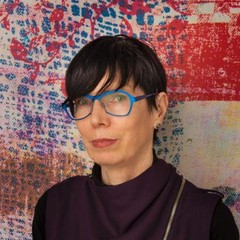
Acclaimed curator and fashion researcher Professor Robyn Healy is Head of RMIT’s School of Fashion and Textiles. Appointed in 2014, she will lead the School through a critical period of change and expansion. Prior to this appointment, Healy held the role of acting Head of School and Deputy Head of Research. She was also previously Program Director of the Bachelor of Design (Fashion) (2009−2012) and HDR Director (2011−2012) in the School of Architecture and Design. Healy has steered the development of the fashion research cohort, and reviewed and restructured the fashion program to facilitate vertically integrated studios, cross-disciplinary studios, and increased industry engagement, particularly with the professional practice stream.
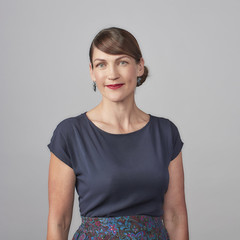
Leah Heiss is a Melbourne-based designer whose practice is located at the nexus of design, technology and health. Within her projects she collaborates widely — working with experts from nanotechnology, medicine, hearing and manufacturing through to fashion design.
Leah is an academic in the RMIT Interior Design program, a researcher at the RMIT Centre for Advanced Materials and Performance Textiles, and a practicing designer whose work has both commercial and research outcomes. Her design work has been exhibited and presented both locally and globally, and attracted significant local and international press across all platforms. She recently received a Good Design Award – Social Innovation for her design contribution to the IHearYou system with Blamey Saunders Hears.
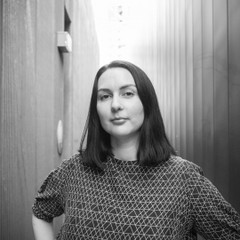
Natalie Hendry is a Vice Chancellor’s Postdoctoral Fellow in the School of Media and Communications. Her research explores everyday social media and digital technology practices in the context of critical approaches to education, mental health, media, wellbeing, youth studies and policy. This brings together her experience prior to academia, working in community education, secondary schools and hospital settings, and consulting for health organisations and industry. Using digital ethnography and creative workshop methods, her postdoctoral research explores emerging and potential online opportunities to enhance digital outreach and media-based support for young people whose parents or adult family members are experiencing mental ill-health.
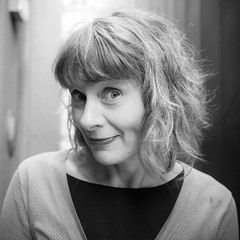
Larissa Hjorth is a digital ethnographer, artist, Distinguished Professor and director of the Design & Creative Practice ECP platform at RMIT University. With Professor Heather Horst, she co-founded the Digital Ethnography Research Centre (DERC). Previously, Hjorth was Deputy Dean, Research & Innovation, in the School of Media & Communication (2013−2016). Hjorth served on the inaugural Australian Research Council (ARC) Engagement & Impact Pilot study assessment panel for humanities and creative practice.
Hjorth studies the socio-cultural dimensions of mobile media and play practices in the Asia-Pacific region with an emphasis on interdisciplinary, collaborative and cross-cultural approaches. She has published a dozen co-authored books, edited over a dozen Handbooks/Companions and has over 40 journal articles.
More recently, Hjorth’s work has become concerned with how we can bring creative, social and design solutions to the growing ageing populations and, in turn, how we might consider scenarios of what it means to die well. She is also studying how our “more-than-human” companions can teach us about new media in everyday life. Hjorth’s last book, Haunting Hands (Oxford Uni Press) looked at how mobile media is being deployed in situations of grief and trauma, her previous book explored how art practice can teach us new acumen into the climate change debate.
Hjorth’s books include Haunting Hands (with Cumiskey 2017), Screen Ecologies (with Pink, Sharp & Williams 2016), Digital Ethnography (Pink et al. 2016) Mobile Media in the Asia-Pacific (2009), Games & Gaming (2010), Online@AsiaPacific (with Arnold 2013), Understanding Social Media (with Hinton 2013), and Gaming in Locative, Social and Mobile Media (with Richardson 2014).
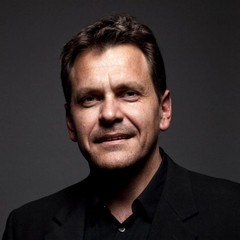
Dr Martyn Hook is Deputy Pro Vice-Chancellor Partnerships in the College of Design and Social Context at RMIT University in Melbourne, Australia. He also holds the position of Dean at RMIT’s School of Architecture & Design alongside his role as Professor of Architecture. In addition to his work at RMIT Martyn is a director of multi award winning iredale pedersen hook architects, a studio practice based in Melbourne and Perth dedicated to appropriate design of effective sustainable buildings with a responsible environmental and social agenda.
Hook has particular expertise in the implementation of strategic vision in creative practice and driving organisational change through the lens of an integrated scholarship model that links teaching and research. Prior to this appointment he was Acting Dean of the School of Architecture & Design and Acting Head of the School of Art.
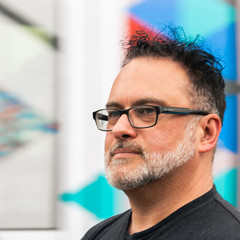
Dr Troy Innocent is an artist, academic, designer, coder, educator, and VC Senior Research Fellow at RMIT University, where his creative practice research explores the city as platform for play through an inventive blend of live art, game design and public art. Over the past ten years he has explored the lived experience of cities through mixed realities; situating his work in Melbourne, Bristol, Barcelona, Istanbul, Ogaki, Sydney and Hong Kong. As Melbourne Knowledge Fellow, Innocent expanded his ‘urban codemaking’ practice for situating play in cities to develop Playable City Melbourne, a three-year project bringing together an interdisciplinary urban play community. He is currently artistic director of 64 Ways of Being, a playable city-wide platform for augmented reality experiences supported by a Creative State Commission.
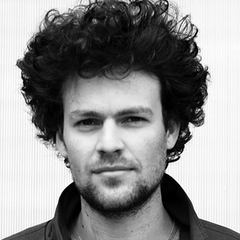
Gwyllim Jahn is a Lecturer in the School of Architecture & Urban Design at RMIT in Melbourne where he is currently completing his PhD. His design practice has been internationally awarded and exhibited and is concerned with complex geometry and behavioural design systems, mixed reality environments, autonomous robotic fabrication and creative applications of machine learning.

Professor Anton James, who trained as a landscape architect and visual artist, has over a period of 20 years designed projects in Australia, Europe and the USA. He has won numerous awards and competitions, both in Australia and overseas. His work continues to focus on design as a means to explore a site’s spatial, environmental and material tension for their potential to enrich the urban experience.
As a working director of JMD design, Anton’s focus on design and innovation continues to contribute to the quality of the built environment. In 2011 he was the recipient of the Australian Medal for Landscape Architecture for the Paddington Reservoir.
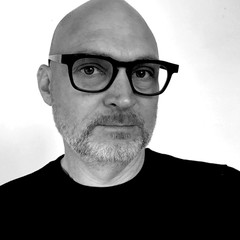
Dr Seth Keen is a new media educator, researcher, and designer in the School of Media and Communication. Seth brings together media and co-design practices to engage with contemporary wicked problems. His track record of expertise is in the design of audiovisual media and image-based platforms. He has worked on collaborative projects with academic and industry research partners in the areas of development aid, cultural geography, social services and disaster resilience. Seth is a winner of a prestigious Good Design Australia Award in Social Impact, 2018.
Seth Keen is interested in talking to ARC Linkage collaborators in the areas of Service Design, Computer Science (mobile applications, cloud-based systems) and Bushfire Fuel Management.
Peter Kelly is Professor of Education and Head of UNESCO UNEVOC at RMIT University. His recent former role was as Associate Dean, Research and Innovation, in the School of Education at RMIT. Previous positions include at Edge Hill University (UK), Deakin University, Monash University, the University of Queensland (UQ).
Kelly is a social researcher who has published extensively on young people, social theory and globalisation. His current research interests include a critical engagement with young people and new cultures of education/work/democracy in the context of the aftermath of the Global Financial Crisis, and with the challenges associated with the emergence of the Anthropocene. He is currently the lead CI on an ARC Discovery Project (DP 170100547) Art Based Social Enterprises and Marginalised Young People’s Transitions.
With colleagues, Kelly leads a research program titled Young People’s Well-being, Resilience and Enterprise: Critical Perspectives for the Anthropocene: https://youngpeopleanthropocene.org/
Kelly has published extensively on young people and the practice of youth studies. His books include: Working in Jamie’s Kitchen: Salvation, Passion and Young Workers (2009), The Self as Enterprise: Foucault and the “Spirit” of 21st Century Capitalism (2013), The Moral Geographies of Children, Young People and Food: Beyond Jamie’s School Dinners (2014), A Critical Youth Studies for the 21st Century (2015), Young People and the Aesthetics of Health Promotion: Beyond Reason, Rationality and Risk (2016), and Neo-Liberalism and Austerity: The Moral Economies of Young People’s Health and Well-Being (2017). He has two recently published books: Rethinking Young People’s Marginalisation: Beyond neo-Liberal Futures? (2018), Young People and the Politics of Outrage and Hope (2018).
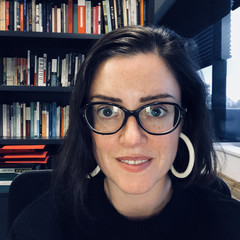
Jenny Kennedy is a Postdoctoral Research Fellow in Media and Communication at RMIT University, Melbourne. Her research interests cover media practices in everyday life, social discourses around technology use and material culture, especially in domestic contexts. She is a core member of the Technology, Communication and Policy Lab in DERC.
She is currently working on projects around digital inclusion, and AI and automation in home environments.
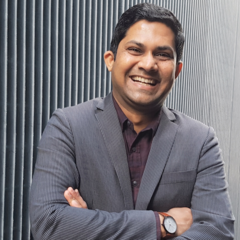
Dr Rohit Ashok Khot is the Deputy Director of the Exertion Games Lab; and Vice-Chancellor’s Postdoctoral Fellow at RMIT University, Australia. Rohit’s research embodies interdisciplinary strength and explores the amalgamation of design and technology in a creative way.
Dr Khot’s track record includes 39 scholarly publications in last 7 years, the majority of which appear in highly competitive HCI conferences and journals and include one best paper and one honorable mention (top 5%) award. Dr Khot’s research also appeared on 30+ press articles including a cover story on Mashable Australia, IEEE Spectrum and TV coverage on Channel 9 News and ABC News 24. He has won prestigious awards including IBM PhD fellowship (2014−2015), 2017 RMIT HDR Prize for Research Excellence (2017), RMIT Vice-chancellor’s Postdoctoral Research Fellowship (2017−2019) and SIGCHI Development Fund Grant (2017,2018). Dr Khot is also involved in organization and management of the Special Interest Group meetings, workshops and symposiums at leading international conferences specifically around food and play, besides serving on program committees for leading international HCI conferences, including DIS and TEI.
Rohit is passionate about playful Human-Food Interaction (HFI) and has an ambitious goal to alter the common perception that food cannot be healthy and pleasurable at the same time.
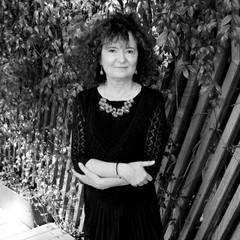
Professor Renata Kokanovic’s works at the intersections of health, society and medicine, with a particular focus on interdisciplinary mental health research.She combines empirical research with interdisciplinary theoretical and methodological scholarship while collaborating with industry partners and health care users to facilitate greater understanding of lived experiences of health and illness.
She co-founded Healthtalk Australia, a digital repository of health and illness narrative accounts designed to support people experiencing ill health, and inform health and social care delivery and policy.
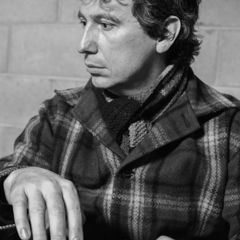
Dr Jordan Lacey is a transdisciplinary creative practice researcher and DECRA Fellow in the School of Design at RMIT University. He is the author of Sonic Rupture: a practice-led approach to urban soundscape design (Bloomsbury 2016), and various articles, which explore the role of sound installations in transforming urban life. Originally a musician and sound-artist, Jordan has become increasingly focused on the urban environment as evolving into sites-of-encounter that might exceed the typical day-to-day functions of city life. He has produced numerous sound art installations, funded by government and industry partners, that seek to influence approaches to urban design. Recently, he has become interested in posthuman critical theory as a means to question the meaning of being human in a changing world, and the ways in which sonic practices might contribute to this conversation.
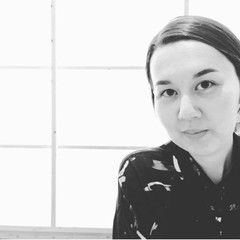
Jacina Leong is an artist-curator and PhD candidate in the School of Media and Communications, RMIT. Her research explores critical-creative and careful curatorial approaches to social innovation practices by museums and galleries.
Over the past decade, she has worked in hybrid new media spaces, universities, national and international festivals, regional museums and galleries, libraries and schools — to vision and deliver a diverse range of trans-disciplinary engagement programs, via highly collaborative, experimental and site-responsive processes. Most recently, Jacina was curator for Robotronica, project lead and founding member of the Guerrilla Knowledge Unit, guest facilitator of the Future Innovators Summit (Ars Electronica Tokyo Initiative), and co-curator of the provocation, Curating In The Age of Automation (RMIT & Ritsumeikan University, Kyoto).
From 2012 to 2017, Jacina worked at The Cube (QUT), establishing the inaugural STEAM engagement program for school and university students, educators and pre-service teachers. This program involved key collaborations with local, national and international organisations including Ars Electronica, LEGO Education, and Brisbane City Council. She has also worked in public program development at the Ipswich Art Gallery, collaborative learning strategy in universities, gallery management at Jan Murphy Gallery, and was advisor to the inaugural Make Nice at VIVID Festival.
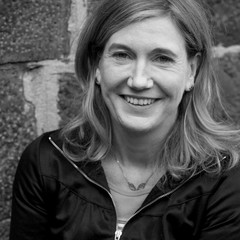
Dr Tania Lewis is the Director of the Digital Ethnography Research Centre and is a Professor in the School of Media and Communication at RMIT University. An ex-medical practitioner, her research critically engages with the politics of lifestyle, sustainability and consumption, and with global media and digital cultures.
Lewis has published over 50 journal articles and chapters and is the author of Smart Living: Lifestyle Media and Popular Expertise, and co-author of Telemodernities: Television and Transforming Lives in Asia, and Digital Ethnography: Principles and Practices. She is also the editor and co-editor of four collections with Routledge including Ethical Consumption: A Critical Introduction and Green Asia: Ecocultures, Sustainable Lifestyles and Ethical Consumption. She is currently writing a book for Bloomsbury Press entitled Digital Food: From Paddock to Platform.
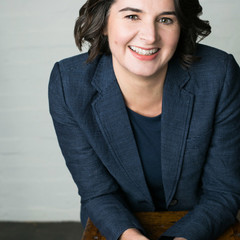
Dr Julienne van Loon is a Vice Chancellor’s Senior Research Fellow with non/fictionLab, and a leading Australian novelist and essayist. Her first novel, Road Story, won The Australian/Vogel’s award in 2005 and was shortlisted for the WA Premier’s Award for Fiction and the Commonwealth Writers’ Prize Best First Book Award (Asia and Pacific). She has held residencies at various international arts organisations and universities, including the University of Iowa, where she was sponsored by the Paul and Hauling Engle Fund to take part in the International Writing Program in 2017. van Loon co-edits the leading scholarly Creative Writing journal TEXT, and is a peer-assessor for the Australia Council for the Arts. Her forthcoming essay collection, The Thinking Woman, includes interviews with key women thinkers from the Australia, Europe and the United States. Her scholarly research interests include the role of play in research and creative practice.
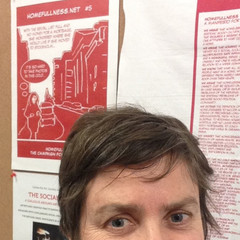
Keely Macarow is Coordinator of Postgraduate Research in the School of Art at RMIT. Keely’s research is focused on socially engaged art and the nexus between creative arts, social justice, health and wellbeing, and social and natural science. Currently, Keely is a member of The Untitled (a collective of artists, urban and graphic designers, architects and housing researchers based in Melbourne and Stockholm) who produce creative works, publications and interventions in Australia and Sweden to advocate for Homefullness (rather than homelessness). Her film, video and exhibition projects have been presented in Australia, the UK, the US, Germany, Belgium, Austria, Sweden, Hungary, France, Scotland and Denmark.
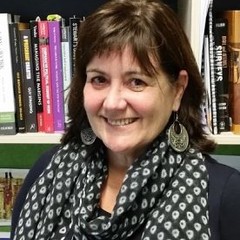
Dr Fiona Macdonald is a Vice-Chancellor’s Senior Research Fellow in the School of Management. Fiona’s research focuses on three interconnected themes: the changing nature of work and employment relationships; regulating for decent work and gender equality; and the political economy of work. The empirical focus of Fiona’s current research on the social care workforce also brings in her long-standing interest in social policy and welfare systems.
In 2016 Fiona was awarded an Australian Research Council Discovery Early Career Researcher Award to examine the workforce challenges of Australia’s new National Disability Insurance Scheme (NDIS). Her research has strong policy relevance and she works closely with industry as well as with national and international networks of employment and care scholars. In 2017 she received the RMIT Vice-Chancellor’s Award for Research impact – Early Career Researcher. Fiona is a member of the Editorial Advisory Board of the recently established International Journal of Care and Caring.

Shelley is the Director of the Business and Human Rights Centre at RMIT University, Melbourne, Australia.
Shelley has undertaken empirical research on these topics in diverse countries, including Bulgaria, India, Indonesia, Australia and Cambodia, and has published widely based on her findings. Her high standing as a scholar has been recognised through the award a number of large multi-country grants, and she has undertaken collaborations with scholars from Cambridge University, Harvard University, Melbourne University and RMIT. Dr Marshall’s long term partnerships with the technical arm of the International Labour Organisation, Oxfam Australia and CORE UK have enabled her to produce research of a highly applied nature, which has had a strong policy influence and provided meaningful lessons for business and other relevant organisations. Likewise, Shelley’s leadership on the Steering Committee of the Australian Corporate Accountability Network has provided opportunities to influence Business and Human Rights policy in Australia.
Dr Marshall holds a Bachelors of Arts with a double major in Social Theory and Political Science and a Bachelor of Law from the University of Melbourne. She studied a Masters of Science in Development Studies at the London School of Economics and Political Science, where the focus was on economic policy. In 2015, she was awarded a Doctor of Philosophy in Regulation Justice and Diplomacy which she undertook at the RegNet School of Regulation and Global Governance, Australian National University under the supervision of Peter Drahos, Valerie Braithwaite and John Braitwaite. Dr Marshall is a Vice Chancellor’s Senior Research Fellow at RMIT University and an Australian Research Council DECRA Research Fellow.
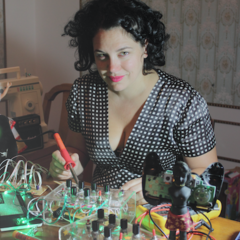
Nancy Mauro-Flude is an artist and theorist. Administer of a home-brewed feminist web server, she leads the Holistic Computing Network Research group and practices experiential pedagogy, in her role as coordinator Emerging Digital/Media Cultures, Bachelor of Design (Digital Media), College of Design and Social Context at RMIT University. Mauro-Flude’s research contributes to the interdisciplinary space of feminist science and technology studies, computer subculture and performance art. Her artworks radically intervenes into public space by the aesthetic application of networking infrastructure, playfully and critically she experiments with signal transmission in order to draw upon contested knowledges and advance broader understandings emergent technologies as they arise as key actors in our embodied life.
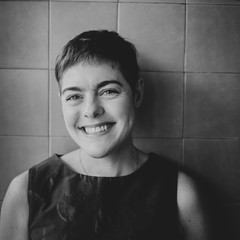
Caitlin McGrane is a feminist researcher and activist. Her doctoral research investigates how women’s feelings about their smartphone uses and practices can help challenge normative and misogynistic notions of women’s communications. She leads Gender Equity Victoria’s (GEN VIC) ‘Enhancing Online Safety for Women’ project advocating for better support and conditions for women working in media. In 2018 – 2019 she worked with GEN VIC to design a toolkit and a series of videos encouraging prosocial bystander actions on social media. She has worked on projects with the Victorian Trades Hall Council Women’s Team building an online resource to supplement their Gender-Based Violence in the Workplace training package. Her previous research has explored how witnessing anti-feminist harassment can negatively affect individuals’ willingness to publicly identify as feminist and participate in online spaces.

Ross McLeod is Program Manager of Design Innovation and Technology at RMIT University, Melbourne. Over the past twenty years Ross has worked as both a designer and as an academic, completing a wide range of one-off and production furniture designs, interior architecture projects, exhibitions designs and sculptural works both locally and internationally.
As a designer, educator and academic he is committed to the development and realisation of design projects, teaching practices and research activities that extend the boundaries of contemporary design and the sensibilities that surround it. His experience in the fields of product design, furniture design, interior design and architecture have been instrumental in the establishment of a creative practice that spans the design disciplines.
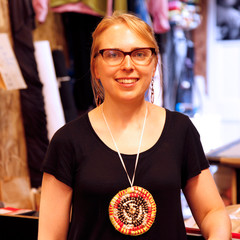
Grace is a published art historian, curator and artist with expertise in contemporary art and design, public art, social practice, social enterprise and community development.
Grace’s research challenges and transforms conventional understandings of the relationship between margin and centre in relation to the cultural economy, contemporary art practice and art history. She has pioneered work on the field of art-based social enterprise in Australia, and has worked extensively in migrant and refugee settlement. She has a multidisciplinary approach that engages with a range of fields including art, design, architecture, sustainability, sociology, business and international development. In addition, through her leadership of the CAST research group, she collaborates with industry and across disciplines to develop research projects that address issues of access, equity and justice.
Grace is a Chief Investigator on the ARC Discovery Project ‘The underworld: outsider artists and the reformulation of Australian art,’ (2018−2020) and the ARC Discovery Project ‘Art-based Social Enterprises and Marginalised Young Peoples Transitions,’ (2017−2019). She has published numerous articles in refereed and unrefereed publications, published creative works in literary journals, authored exhibition catalogues and worked as an editor on local newspapers and engaged widely with local and national media. Grace is the founding CEO & a current Board Director of The Social Studio, a fashion and art based social enterprise working with young people from humanitarian migrant backgrounds in Melbourne.
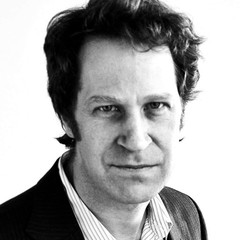
Paul Minifie is a senior lecturer for the Architecture program in RMIT’s School of Architecture and Urban Design and a Director of Minifie van Schaik Architects.
Zoe is an urban designer and lecturer working at the Australian Urban Design Research Centre (AUDRC), part of the School of Design at the University of Western Australia, where she teaches in the Master of Urban Design. She has led and participated in research projects and design communication for local and State government on topics such as the challenges, perceptions, and spatial issues relating to medium density housing and transit-oriented development, implications of river and sea-level rise for cities, and co-design strategies for urban renewal. Zoe has over 15 years’ experience across the private, public, and tertiary sectors, in project management, policy and planning, and senior strategic communications, including experience in statutory planning, strategic planning policy, and legislative and parliamentary processes. She sits on the City of Vincent Environmental Advisory Group, which has overseen projects such as drain conversion into public park space. Zoe’s current research at AUDRC is focused on how evidence-based urban design can enhance mental health and restoration through connection to nature in our cities, and the remaking of overlooked spaces and hard infrastructure as ecologically and emotionally regenerative places. She is the author of Wildness and Wellbeing: Nature, Neuroscience and Urban Design (Palgrave Macmillan).
Dr Zoe Myers is the team leader for Haptic Pathways, the finalist for the 2019 DCP Design Challenge.

Ananta is a Lecturer in Economics specialising in Behavioural, Development and Experimental economics. His academic research focuses on the impact of social institutions (like gender norms) on individual decision making and behavioural effects of rewards. He has successfully published his work in top-tier economics journals such as the Journal of Economic Behaviour and Organization and Economics Letters. Ananta also has conducted multiple impact evaluation projects and has provided consultancy services to Plan International, World Bank, International Organization for Migration, Swiss Development Corporation and the Consumer Policy Research Centre. Ananta received his PhD from Monash University in 2014.
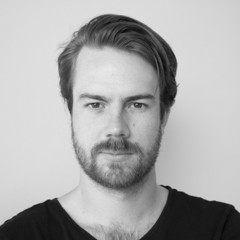
Cameron Newnham explores how technology and architecture can intersect to extend the art of the possible. Using augmented reality and a deep understanding of architectural practice Cameron is striving to identify how technology can transform architecture and construction, speeding the delivery of complex buildings, and injecting new levels of craftsmanship into the built environment.

Daniel Palmer is Associate Dean of Research and Innovation in the School of Art at RMIT University.
Daniel Palmer’s research and professional practice focuses on contemporary art and cultural theory, with a particular emphasis on photography and digital media. Prior to joining RMIT in 2018, Palmer was Associate Dean of Graduate Research and Associate Professor in the Art History & Theory Program at Monash Art, Design & Architecture. He also has a long association with the Centre for Contemporary Photography in Melbourne, first as a curator and later on the board of management.
Palmer’s book publications include Photography and Collaboration: From Conceptual Art to Crowdsourcing (Bloomsbury 2017); Digital Light (Open Humanities Press, 2015), edited with Sean Cubitt and Nathaniel Tkacz; The Culture of Photography in Public Space (Intellect 2015), edited with Anne Marsh and Melissa Miles; Twelve Australian Photo Artists (Piper Press, 2009), co-authored with Blair French; and Photogenic (Centre for Contemporary Photography, 2005). His scholarly writings on photography and contemporary art have appeared in journals such as Photographies, Philosophy of Photography, Angelaki, Reading Room and the Australian and New Zealand Journal of Art. Palmer has also published over sixty catalogue essays and fifty art reviews since 1997, in art magazines including Art and Australia, Photofile and Frieze.
Palmer has been the recipient of various awards and grants, and has been Chief Investigator on multiple ARC projects, including the ARC Discovery Project ‘Genealogies of Digital Light’ (2008 – 11) with Sean Cubitt and Les Walkling; an ARC Linkage Project ‘Photography as a Crime’ (2009 – 2012) with Anne Marsh, Melissa Miles, Mark Davison and the Centre for Contemporary Photography; and the ARC Discovery Project ‘Curating Photography in the Age of Photosharing’; (2015 – 2017) with Martyn Jolly. Palmer is currently a researcher on the ARC Discovery Project ‘Digital Photography: Mediation, Memory and Visual Communication’ (2020 – 2022) with Scott McQuire, Nikos Papastergiadis, Sean Cubitt and Celia Lury.
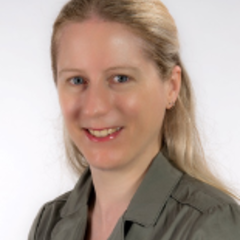
Joanne Peryman (Laban) is a Lecturer in Economics. She holds a PhD in Economics from the University of Exeter, a Masters in Behavioural Economics from the University of Nottingham, and a BCom (Hons) in Economics from the University of Canterbury. Using mainly experimental methods, Jo’s research focuses on cultural differences in decision making, especially in situations involving uncertainty or risk. She has presented the results from this work at conferences in the UK, The Netherlands, and China. Jo is also keen to apply behavioural insights to policy. During her PhD she completed an internship with a UK Government Department, where she applied ideas from behavioural economics to real-life problems. Her work has attracted funding from the UK’s Economic and Social Research Council, as well as numerous small grants from the University of Exeter’s Behaviour, Decisions and Markets Research Centre.

Johanna E. Prasch is a PhD student and a research assistant and tutor in the School of Economics, Finance and Marketing and the BBL. After completing her Bachelors in Psychology from the University of Regensburg, and her Masters in Psychology from the University of Bamberg (both Germany), she started her PhD program in the BBL in February 2018. For her PhD project in consumer behaviour, Johanna got awarded a Stipend Scholarship from RMIT University. Her research interests centre around combining experimental methods from psychology and consumer behaviour to investigate mechanisms behind intercultural communication and behaviour. Currently, Johanna is investigating how to increase social inclusion and cooperation in multicultural settings.
Helen Rayment is RMIT Gallery’s Acting Director and Senior Exhibition Coordinator. She is an experienced arts administrator and curator with a demonstrated history of working across the art museum sector and in higher education. She has a Master of Arts in Visual Art from Monash University. In 2018 she was awarded a professional development grant by the Australia Council to further her significant work in Asia.

Francesca Rendle-Short is Associate Dean Writing and Publishing in the School of Media and Communication at RMIT University in Melbourne, Australia. She is co-founder of the non/fictionLab research group and co-director of WrICE (Writers Immersion and Cultural Exchange). She has a Doctor of Creative Arts from the University of Wollongong, was a recipient of an International Nonfiction Writers Fellowship to the University of Iowa, and was showcased in the Outstanding Field at Victoria College of the Arts, University of Melbourne.
Francesca Rendle-Short is an award winning novelist, memoirist and essayist. Her books include Bite Your Tongue, Imago, and The Near and The Far; also the forthcoming 100 Love Letters, and No Notes (This is writing). Her artwork is in the collection of the State Library of Queensland.
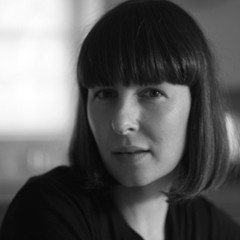
Kate Rhodes was a curator at RMIT Design Hub, a new, purpose-built, 10-storey home for design exhibitions, programs and research in Melbourne. Kate has been creative director of the State of Design Festival, and curator of its Design for Everyone program. She has worked as adjunct curator at Object: Australian Centre for Craft and Design, and as editor of Artichoke, an architecture and design magazine. She has also worked as a curator at the National Design Centre and at Craft Victoria, and was assistant curator of Photography and Contemporary Art at the National Gallery of Victoria for five years. She completed a Masters of Art Curatorship at the University of Melbourne in 2002, and a Masters of Design Research in RMIT’s Faculty of Architecture and Design in 2010. Kate is a founding member of the Office for Good Design, and is currently an editorial advisor at ARTAND Australia magazine.

Professor Ingrid Richardson has been teaching, supervising and researching in the fields of digital media, mobile media and games for over twenty years. She has a broad interest in the human-technology relation and has published widely on the phenomenology of games and mobile media, digital ethnography and innovative research methods, the relation between technology use and wellbeing, and the cultural effects of urban screens, wearable technologies, virtual and augmented reality, remix culture and web-based content creation and distribution. Ingrid has led or co-led 14 funded research projects, the most recent being an ARC DP [Games of Being Mobile] with Larissa Hjorth. She is contributing co-editor of Studying Mobile Media (Routledge, 2011) and co-author of Gaming in Social, Locative and Mobile Media (Palgrave, 2014), Ambient Play (MIT, 2020), Understanding Games and Game Cultures (Sage, 2020), Exploring Minecraft: Ethnographies of Play and Creativity (Palgrave, forthcoming), and Mobile Media and the Urban Night (Palgrave, forthcoming). Ingrid brings ten years’ experience in university-level HDR management and during this time has actively championed and supported creative methods and practice-led postgraduate research. Over the past five years she has also developed a passion for teaching critical web literacy skills to undergraduate students across all disciplines.
Dr Jenny Robinson is a lecturer in Media and Communication, teaching classes in audience research and strategic communication. Her research is in media psychology, most recently using biometrics and experimental methodology to investigate audience reception of multi-platform advertising models. She is interested in understanding how people respond to mediated communication whether that is TV, online content, public interaction or art.
Robinson brings an interdisciplinary approach to the study of audience experience, with a BA (hons) in psychology and PhD in mass communication, MA in TV and film, and Grad Dip in science communication.
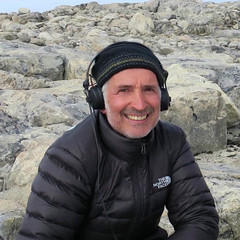
Philip is an Associate Professor within RMIT School of Art, and leader of the Sound Art and Audio Culture Lab.
Associate Professor Samartzis is a sound artist, scholar and curator with a specific interest in the social and environmental conditions informing remote wilderness regions and their communities. His art practice is based on deep fieldwork where he deploys complex sound recording technology to capture natural, anthropogenic and geophysical forces. The recordings are used within various exhibition, performance and publication outcomes to demonstrate the transformative effects of sound within a fine art context. He is particularly interested in concepts of perception, immersion and embodiment in order to provide audiences with sophisticated encounters of space and place. Philip is the recipient of three Australian Antarctic Division Arts Fellowships (2009, 2015, 2020), which he is using to document the effects of extreme climate and weather events in Eastern Antarctica, Macquarie Island, and the Southern Ocean over a 12-year period.
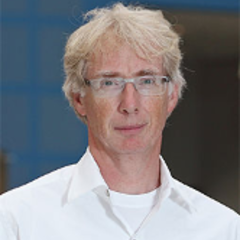
Dr. Jan Schoormans (1956) is a Professor of Consumer Behaviour at the Faculty of Industrial Design Engineering, Delft University of Technology, Delft, the Netherlands. His research focuses on consumer preferences and behavior towards (the design of) new products. He has published on these topics in marketing journals like the International Journal of Research in Marketing, Psychology and Marketing, the Journal of Product Innovation Management, in psychological journals like Perception and the British Journal of Psychology, in engineering journals like Applied Energy, Journal of Cleaner Production, and in design journals like Design Studies, Journal of Engineering Design and the Design Journal.

Currently undertaking a PhD in Design at RMIT School of Design, Jacob explores socially engaging technology in later life and its shaping by designers. Approaching design research through investigating the materiality of artifacts, and our interactions with them, Jacob seeks to uncover social-technical practices through dialogical and anthropological means.
Alongside his doctorate research, Jacob is involved in ‘Co-designing Participatory Strategies With Older Adults ‘ (Shaping Connections) and ‘Enabling an Ageing Workforce’ (Safeness by Design) research projects. As a sessional lecturer in Design Studies, Jacob hopes to foster research-led and collaborative design practices in socially complex contexts. With a diverse background in the design industry, he is interested in locating design research practice in wider discourses and interrogating its impact.
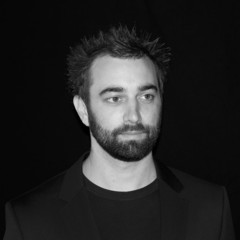
Associate Professor Roland Snooks is a founding partner of Kokkugia and director of Studio Roland Snooks. He holds a B.Arch from RMIT University and a Master in Advanced Architectural Design from Columbia University where he studied on a Fulbright scholarship. Roland’s PhD (RMIT University) and current research is focused on establishing a methodological and conceptual basis for a behavioral approach to design. An algorithmic strategy drawing from the logic of swarm intelligence and operating through multi-agent algorithms. He is a senior lecturer at RMIT University where he directs the Architectural Robotics Lab having previously taught widely including at Columbia, University of Pennsylvania, SCI-Arc, Pratt Institute, UCLA, and USC. Roland has taught masterclasses, lectured and been an invited critic at institutions including Harvard, Yale, Aalto University, Milano Politecnic and the Architectural Association (AA.DRL).
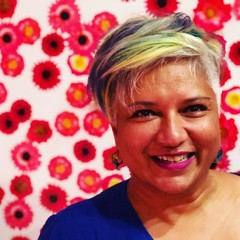
Dr Ruth De Souza (FACN) is a Vice-Chancellor’s Fellow at RMIT, based in the School of Art and DCP Research Platform. She is a nurse, academic and a community-engaged researcher in gender, race, health and digital technologies. Ruth’s Fellowship will engage health professionals in finding new ways to understand, co-design and implement sustainable cultural safety initiatives in a range of health contexts in response to health inequities.
Prior to moving to Australia in 2013, Ruth worked at AUT University where she taught in the School of Nursing, led the Bachelor of Health Promotion, and was a Senior Research Fellow at the Centre for Asian and Migrant Health Research. Since her arrival in Australia, Ruth has undertaken a wide range of roles, including leading an undergraduate nursing program at Monash University’s Berwick campus; spearheading a unique community-engaged joint research appointment with North Richmond Community Health exploring how wearables and other digital technologies are perceived by people from culturally and linguistically different backgrounds and co-ordinating an interdisciplinary Data Systems and Society Research Network across the University of Melbourne. Ruth has also investigated the applicability of cultural safety in Australia, working closely with The Congress of Aboriginal and Torres Strait Islander Nurses and Midwives (CATSINaM), presenting at their National Professional Development Conferences and delivering training on cultural safety. She has also undertaken a two-year cultural safety project with cohealth (a not-for-profit community health organisation) and Our Watch who work for the primary prevention of violence against women and their children.
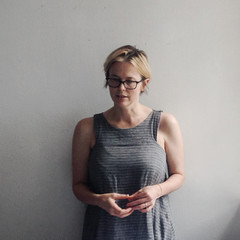
Lucinda Strahan is a writer and researcher of expanded nonfiction. Lucinda’s own expanded writing practice spans journalism and arts criticism, auto-ethnographic and personal essaying, editing and publishing, and exploratory literary-visual methods. She is the currently Writer in Residence at Linden New Art, St Kilda and in 2017 was Writer in Residence Residence at Grey Projects, Singapore as part of her ongoing interest in interdisciplinary critical/creative writing practices. Lucinda is a Lecturer in the Professional Communication program in the School of Media and Communication.
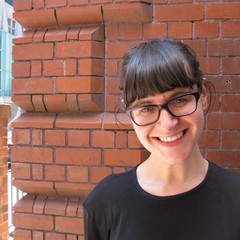
Nella Themelios is a curator, writer and producer. She currently holds the position of Creative Producer at Design Hub, RMIT and is also the Chair of the Board of Victorian artist run initiative, Bus Projects. Previous to this she was the Coordinating Curator at Craft Victoria, the peak body for craft and design in Melbourne. She holds a Bachelor of Arts (Cultural Studies) and a Graduate Certificate (Art History) from the University of Melbourne and is currently completing a Masters degree in Curatorship at the same institution. She has written numerous catalogue essays and produced projects across a variety of disciplines. Recent curatorial projects include: Signature Style (2013) (a NETS touring exhibition); Dolci & Kabana: #thathautecouturefeeling (with Ricarda Bigolin) (2013); Bless: No 38 Windowgarden (2011); Play with your Food (with Drew Pettifer) (21010÷11), The Sound Playground (with Amelia Barikin) (2010); Chicks on Speed: Viva la Craft! (2009).
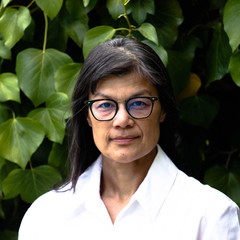
Michelle Aung Thin is a writer, former advertising copywriter and scholar. She is a Lecturer at RMIT University and teaches across the disciplines of Creative Writing and Advertising. Her most recent novel, Hasina (Allen & Unwin 2019) is about Rohingya ethnic cleansing and is published as Crossing the River Farak (Annick 2020) in Canada and the USA. Her first novel, The Monsoon Bride, (Text 2011) is set in colonial Burma and was shortlisted for the Victorian Premier’s Literary awards as an unpublished manuscript. Her writing has been included on VCE reading lists and republished on the SBS website. In 2017, she was a National Library of Australia Creative Arts Fellow (supported by the Eva Kollsman and Ray Mathew Trust) and in 2014, the first Asialink writer in residence to Myanmar (funded by Arts Victoria).
Michelle was a co-director of the non/fictionLab in 2018 and 2019, is currently a co-director of WrICE, Writers Immersion and Cultural Exchange and has served on the board of The Lifted Brow. Her research interests range from the cultural history of southeast Asian hybrid identities to contemporary creative practices in Myanmar and the ethics of writing about difference. Current research includes a project addressing diversity in publishing and a pilot study that aims to reduce sexist advertising by educating the next generation of advertising creatives about harmful stereotypes.
Botanist, quantitative plant ecologist; Research Fellow, ICON Science, Centre for Urban Research, RMIT University Melbourne. Freya is a plant ecologist working as a Research Fellow at RMIT on an ARC-Linkage project which focuses on designing urban green spaces for human wellbeing and for biodiversity.
Freya is a botanist whose professional work has spanned many Australian ecosystems and she has a thorough knowledge of Australian native flora. Her PhD focused on building and evaluating quantitative predictive models of plant growth. She also has experience working for the State Government on developing and implementing long term vegetation monitoring programs. Her current research at RMIT focuses on evaluating how urban green spaces influence human wellbeing but also how plant choice in cities influences other organisms like birds, bees and butterflies. Freya is passionate about plants and interested in various ways plants can be wholly appreciated and incorporated into urban areas.
Evelyn Tsitas is RMIT Gallery’s Senior Communications and Outreach Advisor. An award winning published author and former journalist, Evelyn has a PhD in Creative Media and curated the 2018 exhibition My Monster: The human-animal hybrid, based on her doctoral research at RMIT.
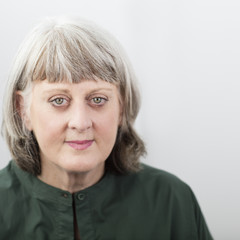
Professor Laurene Vaughan is Dean of the School of Design at RMIT. She is internationally recognised as a leader in interdisciplinary and applied design research and pedagogy. Professor Laurene Vaughan has a diverse research and teaching practice covering the areas of design, communication, fashion and embedded research in diverse industry sectors. Laurene currently also contributes to the University research community through being a Research Leader in the RMIT Design Research Institute.
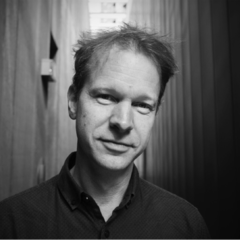
Dr Darrin Verhagen is a senior lecturer in Media and Communication, and runs the Audiokinetic Experiments [AkE] Lab.
Verhagen teaches into the Sound Design specialisation in the Digital Media Program. His work in the AkE Lab uses sound, motion simulators, 4D cinema seating, light and VR to create and audit works that explore the relationship between hearing, vision, movement and vibration. With a background as a soundtrack composer and sound designer for theatre, dance, film and installation, his research interests interrogate the psychophysiology of aesthetic experience, and explore practical applications of such knowledge beyond art.
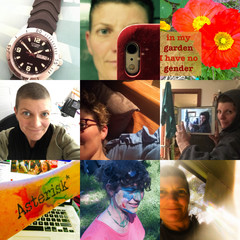
Son Vivienne is a Post-Doctoral Researcher at Creative Agency and the Digital Ethnography Research Centre at RMIT. Their principal expertise is digital self-representation, online activism, queer identity, and rhetorical strategies/feminist practices for speaking and listening across difference. Son is also involved in community development and arts as an activist, workshop facilitator and media-maker. Son is author of Digital Identity and Everyday Activism: Sharing Private Stories with Networked Publics (Palgrave Macmillan) and co-author/co-editor of Negotiating Digital Citizenship: Control, Contest, Culture (Rowman & Littlefield).
Son curates several collective storytelling websites for queer and gender-diverse communities and has over twenty years of multi-media production and distribution experience. As an award winning writer/director/producer of drama and documentaries, they tackled subjects as diverse as youth suicide; drug cultures in Vietnamese communities; and lesbian personal columns. Their film work includes multi-lingual (Vietnamese-English and Adnyamathanha-English) and multi-modal (animation, micro-docs, digital storytelling and interactive web-platforms) projects that reflect their comparative, cross-cultural and critical approaches to communication and storytelling.
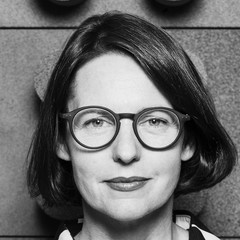
Dr Fleur Watson is a curator and editor specialising in architecture and design.
Fleur Watson was the Curator at RMIT Design Hub – a building dedicated to cross-disciplinary design research and experimentation. Fleur has managed and co-curated a diverse range of exhibitions for Design Hub including Las Vegas Studio, Brook Andrew : De Anima, The Future Is Here (in collaboration with London’s Design Museum), 100 Chairs in 100 Days: Martino Gamper and, most recently, Occupied curated with Otherothers. Extending upon her curatorial role, Watson leads the RMIT University design partnership with the National Gallery of Victoria and recently contributed as an invited judge for the NGV’s architecture competition towards the 2016 NGV Summer Architecture Commission.
In 2013, Watson was an invited architecture and design curator for the National Gallery of Victoria’s Melbourne Now exhibition and co-produced the installation Sampling The City. She also founded Pin-up Architecture & Design Project Space – an independent exhibition space in Collingwood (2011−2014). Watson is a former editor of Monument magazine (2001−2007), the editor of the Edmond & Corrigan monograph Cities of Hope: Remembered/Rehearsed and, most recently, co-edited an issue of Architectural Design UK (May/June 2015) with RMIT University’s Innovation Professor of Architecture Leon van Schaik AO. In 2015, she completed a practice-based PhD at RMIT University entitled The Agency of Encounter: Performative curatorial practice for architecture and design.
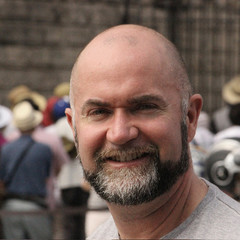
Peter West is a Communication Design lecturer and PhD candidate. He has a diverse teaching practice which moves across areas such as communications strategy, art direction and design for social change. He draws upon practical industry experience as both a freelance art director and copy writer within both multinational communications agencies and health related communications strategies within the not for profit sector.
His research focuses on ways in which Non-Indigenous creative practitioners can better understand their subject position in relation to Indigenous sovereignty. West is as a chief investigator on Sovereign Weaving Project: ‘Practicing Sovereign Relations through Weaving a Treaty’. The project seeks to support Indigenous Nations to practice their sovereignty, through the realisation of a woven treaty as the conclusion of their diplomatic responsibilities.
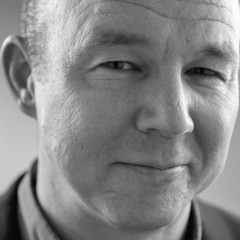
After graduating from Oxford University and the Royal College of Art with an MFA in Sculpture, Kit Wise received the Wingate Rome Scholarship in Fine Art in 1999, to study at the British School at Rome. He moved to Australia in 2002 and completed his PhD at Monash University in 2012.
Wise has held senior educational leadership and leadership and governance roles since 2008. He is a Board Member for Deans and Directors of Creative Arts (DDCA) and Deputy Chair of the Executive Council of the Australian Council of University Art and Design Schools (ACUADS).
He is Professor of Fine Art and Dean of the School of Art at the RMIT University; and an Adjunct Professor at Monash University and the University of Tasmania. He is represented by Sarah Scout Presents, Melbourne and continues to practice as an artist, art writer and curator.
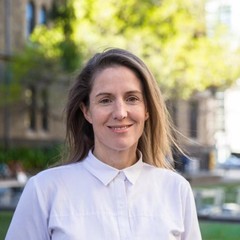
Dr Emma Witkowski is the Director for Playable Media and a Lecturer in the School of Media and Communication. As the Program Manager for the Bachelor of Games Design degree, Witkowski teaches theoretical units on Game Cultures and Game Studies.
Witkowski received her PhD in Game Studies in 2012 from the IT University of Copenhagen, Denmark, taking a qualitative exploration of networked high performance play, considered through a lens of sociology and phenomenology, sports and game studies. She has been working in the field of computer game cultures since 2005, the same year she co-founded the Danish state and privately funded initiative Letzplay, a project aimed at increasing young women’s access to ICT’s and computer gaming knowledge.
Her current research looks at various aspects of computer game cultures, including high performance networked teamplay, esports, gender and games and serious leisure practices. She has written and presented on topics such as identity and play, livestreaming and spectatorship, Mega-LANs, running aesthetics, and the phenomenology of high-performance networked teams.

Rebecca Yang has developed a strong and passionate commitment to industry-focused research and teaching. Her research resonates with RMIT’s vision of transforming the built environment to create sustainable and resilient cities, and her current research focuses on solar energy applications in buildings, and construction innovation. She is the leader of Solar Energy Application Group. She is the leader of Solar Energy Application Group and the Australian expert in International Energy Agency PVPS Task 15 BIPV.
